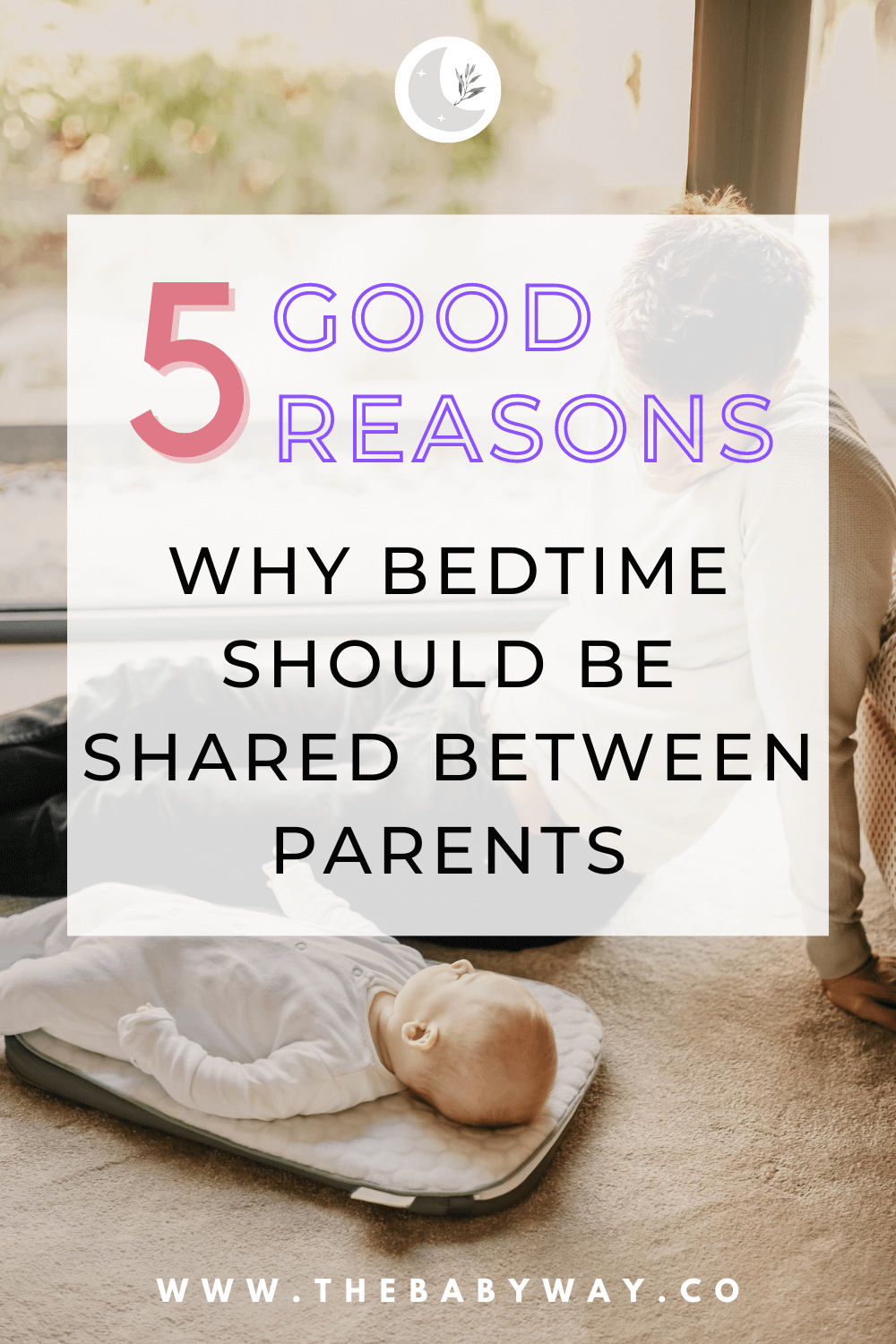5 reasons why alternating bedtime duty between parents is a good idea and how the whole family can benefit from it
I was home after giving birth to our beautiful baby girl. For the first two weeks, bedtime was kind of easy. She would fall asleep on the breast, and I would put her into her bassinet. Getting my baby to bed was uncomplicated, and I felt it was my job to do.
But things changed after about two weeks. We started to slowly experience the witching hour. She was very unsettled in the evening, and it ended with a crying fit until she finally fell asleep in my arms. Getting her to sleep was had become so difficult, and it broke my heart hearing her cry inconsolably. She would also cry at the breast, so nursing to sleep did not work anymore.
I continued to bring her to bed for the next two weeks until, one evening, I came out of our bedroom crying inconsolably myself. I couldn't do it anymore. I was done. Only after four weeks, I had no strength left in me to put her to bed. The crying was getting to me so bad.
I went to my husband and told him while still crying, from today on, we will take turns bringing her to bed. He was reluctant at first and tried to convince me that I was able to soothe my baby much easier. I understand that he felt very insecure about the whole situation. But I could not continue doing this alone. After all, we are both parents to this little girl. He was not happy about it, but I continued to insist on it.
And to this day, I can say this was the best decision I ever made.
After a while, he got used to bringing her to bed. And today, we don't have one single argument about bedtime. It is and will always be a shared duty. And I am very happy about it because there is no way I am putting two little children to bed on my own.
Bedtime can sometimes be stressful. And if a parent has a chance to get out of it, I guess they do. So in many families, bedtime often becomes a sole parent's task, in most cases the mother's.
Often it happens unnoticed and then becomes a habit over time. Newborns are often fed to sleep by their mothers. Mothers may feel more comfortable putting their baby to sleep. Or fathers think that the baby is easier comforted by the mother. Whatever the reason is, one day, before you know it, your baby will only rely on you to be put to bed.
And you end up super annoyed.
Change Your View About Bedtime
I think it is always a good approach to include both parents at bedtime because bedtime is not only about finally putting your little one to sleep.
Bedtime is a very important part of your little one's day. It's the time before they separate from you. It's the last chance of your day to engage intensively with your kid before they drift off to the world of dreams. It's your chance to connect with your child and nourish that relationship.
I know that bedtime can be a struggle, and every parent will probably experience a bedtime battle at some point. I have been there. But bedtime can also be something to look forward to (besides the part where your child finally falls asleep).
So I definitely think that there are several good reasons why rotating bedtime between parents is so important.
It Is Important Bonding Time
A bedtime routine is not only supposed to help your child wind down from the day. It is also important bonding time between parent and child. Young children thrive on time with you, on cuddles and hugs. It really does help to build and nurture your relationship with your child. The quality time right before going to bed is their safe haven and comforting zone where they can escape all the uproar and tumult of the day in the secure presence of their parent.
And there is something magical that accompanies bedtime, too. Having a bedtime ritual together, reading a bedtime story, reflecting on the day, and thinking about what to be thankful for is a beautiful thing to do together. Believe me when I say that children will remember how bedtime was for them until adulthood. They will remember those bedtime stories and the cuddles in bed. Becoming aware of the importance of bedtime will not only enlighten your child's heart but yours as well as you are able to share these moments together.
Everybody needs a break from bedtime
Ok, now that I have made bedtime completely dreamy, let's get back to reality. Just kidding.
BUT even if you have the most blissful and relaxing bedtime ever, every parent needs a break from time to time. There will be days when you are completely exhausted from the day, and you just don't have the energy anymore to put your child to bed. We all have these days. That is when switching bedtime every other night will save you, your sanity, your stress levels, and maybe even your relationship with your partner.
Parenting Is Not a Sole Task
Time has achieved a lot when it comes to parenting equality. And while fathers are more involved than ever in their children's lives, mothers still seem to put in more work. Even when you are a stay-at-home mom, responsibilities need to be shared. You both have jobs to do, either working at home as a parent or going to their workplace. They may be different jobs, but they are both tiring. Of course, every parent has their individual qualities and abilities as a parent, and not every parenting task needs to be rotated. But sharing a special task like the bedtime routine allows both parents to support one another, which will only strengthen the relationship as parents and as partners.
Certain Occasions Will Require the Partner to Step In
There will always be situations where you may not be able to put your child to bed. For example, you may be sick, late from work, or simply may want to go out from time to time. And being the only one who can bring a child to bed can lead to confrontation. Mom is frustrated that she is bound to bedtime, dad is frustrated that the children don't want to be put to bed by him. It is an avoidable situation by simply making bedtime a team effort. And your children will get used to being put to bed by both parents. So if one is not around, it will not be such a big deal.
You Have More Than One Child
It may be manageable for one parent to take over bedtime when you have one child. But having two children or more at play makes everything more complicated. Putting two children to bed at the same time can be extremely challenging. In addition, when there is a new sibling, jealousy will always be a subject. The older child may demand some quality time alone with a parent, and sharing the parent's focus with a new sibling after a long and tiring day can feel intruding.
Or, when your child already only tolerates the mother taking her to bed, starting to switch bedtime roles now may be hard on all family members. And if the mother is always putting the newborn to sleep, she might actually miss bedtime with her older child.
When parents rotate bedtime, both children can enjoy dedicated one-on-one time with each parent.
Don’t Be Afraid to Initiate Change
It seems that it is really difficult for mothers to ask their partners to take over more parental tasks. There is often such insecurity about changing the current situation, and often it feels as if we are burdening our partners.
In most families, mothers already take over most of nighttime parenting. They suffer most from sleep deprivation and are often in charge of night wakings alone.
Obviously, parenting is a private family affair. But I want to encourage you not to be afraid to hand over tasks to your partner. The first step might be difficult, and the first few nights, you might even argue or hear comments. But it will become a habit, and it will be as if it was always this way.
My husband was so insecure and reluctant to put our baby to bed the first time. And today, we know whose turn it is without even exchanging a word. And there is no grudge between each other.
I know that for some families, bedtime can be a real struggle. And when the day was long and hard, taking over this last responsibility of the day may not sound very appealing at first. But there is nothing more precious as seeing your little one happily drifting into slumberland. And in a few years, when you look back at those times, you will be utterly grateful that you were a part of it.









